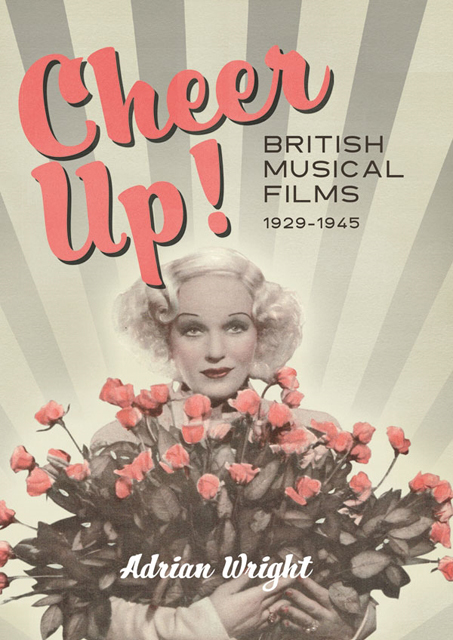Preface and Acknowledgements
Published online by Cambridge University Press: 18 January 2023
Summary
After serving in the RAF during the Great War, Herbert Wilcox, destined to be one of the most prolific producers and directors in the British film industry, worked as a salesman with silent films to sell. The business of making films would be his lifelong obsession. Wilcox’s greatest contribution to the medium, Anna Neagle, recalled how on the threshold of his career,
He spent many weary months plodding round grey, windy streets and waiting in the draughty foyers of run-down cinemas to see the managers. He knew the sort of people who ‘went to the pictures’ not in the very few lush cinemas of London’s West End but in the shabby places across the country which were the bread-and-butter of the film makers.
Herbert Wilcox was travelling by train, revisiting the industrial north with Anna Neagle and actor Michael Wilding, scheduled for personal appearances. The films Wilcox made with them held up an image of metropolitan sophistication, ersatz glamour and romance that a vast proportion of their audiences could only have dreamed of. As the train sped past the dreary, blackened landscape,
with rows and rows of small brick houses, Herbert touched Michael’s arm and pointed through the train window. ‘Never forget, Michael,’ he said. ‘The people who live in those houses are the people we are making films for, they need entertainment.’
I have spent too many years looking for a book about British musical films that is not only informative but attempts a long-overdue critical reassessment of the genre. Perhaps that book already exists. I have not found it. The lack of attention paid to these films in the mountain of literature about cinema, much of it too academic for digestible words, suggests that they are, perhaps with a handful of exceptions, unworthy of remembrance or reconsideration, and cannot be accepted as art of the meanest kind. The veil has too often been drawn. One of the characters in the 1945 film I’ll Be Your Sweetheart refers to the sort of musical numbers that crop up on almost every page of Cheer Up! as ‘gutter music’, presumably even lower on the intellectual scale than Noël Coward’s ‘cheap music’. We should at least remember that in Private Lives Coward hit a nail on the head by recognising cheap music’s potency.
- Type
- Chapter
- Information
- Cheer Up!British Musical Films, 1929-1945, pp. xiii - xvPublisher: Boydell & BrewerPrint publication year: 2020



